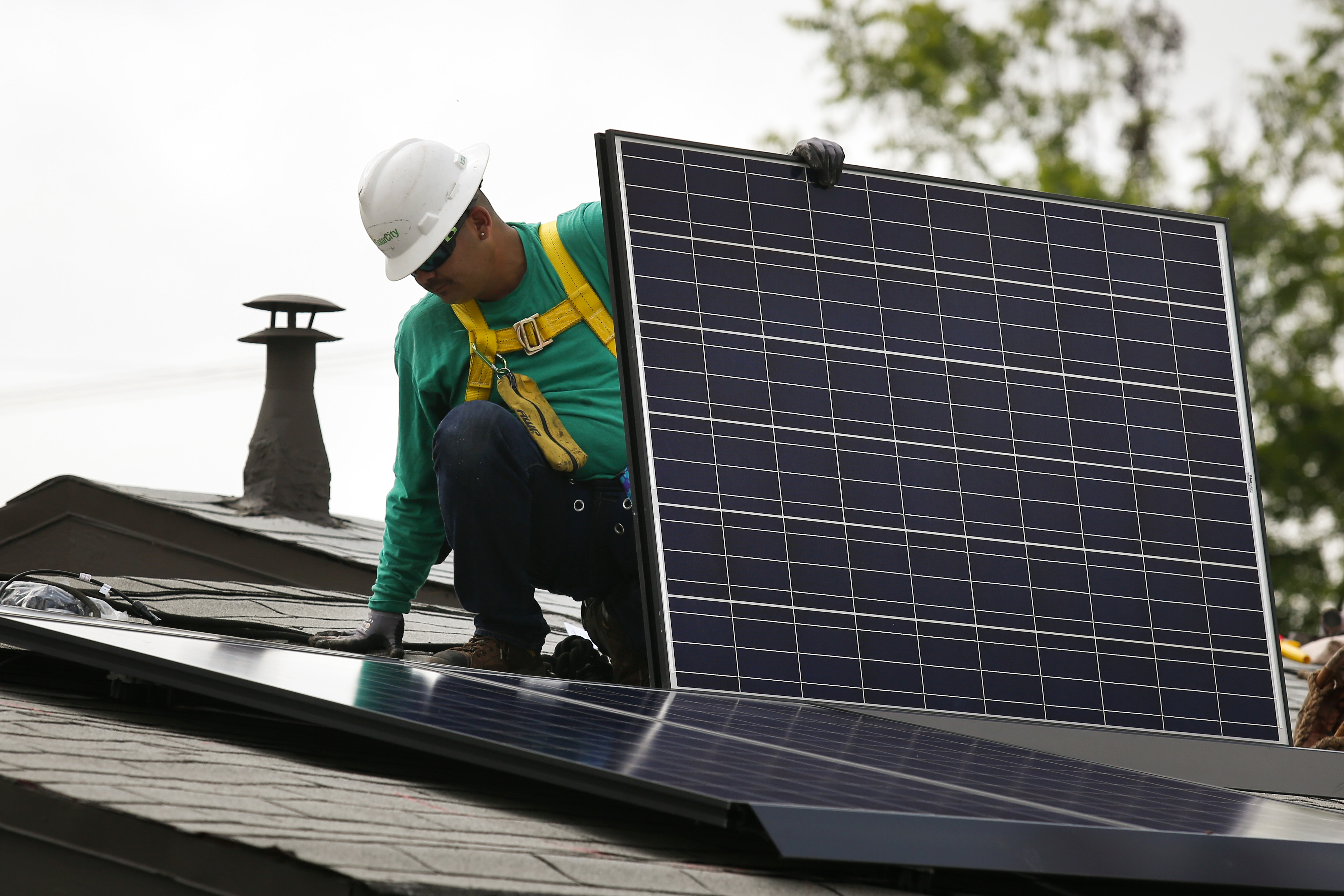California will require that new homes include their own solar panels beginning in 2020, state officials announced Wednesday in the latest step to position the state as the leader in clean energy.
The decision, praised wholeheartedly by the solar industry, has the potential not just to grow demand for solar panels in the country’s most populous state but also to reshape the debate about how solar technology should be used.
For years, researchers and clean energy advocates have debated the best way to use solar technology — whether its most effective in large utility-scale power plants or on the roofs of homes and businesses. Consumers like being able to control their rooftop energy source, but opponents of rooftop solar argued that it is significantly more expensive than solar power from large power plants.
The unanimous decision from the California Energy Commission signals that rooftop solar is here to stay — and just as an afterthought for wealthy individuals who care about the environment. And, while California’s market is huge on its own, the bigger potential comes if other states follow suit. That has happened with a whole range of energy and environmental policy, from the 13 states that follow California’s emissions standards to the 28 that followed California’s lead in setting a minimum level of renewables in their electricity mix.
Read More: What President Trump’s Tariff on Solar Panels Means for American Jobs
Such a shift could mean a big change in the solar business. Thomas Werner, CEO of Sun Power, a leading U.S. solar company, said he expects residential solar installations to grow from 10% of his business to 20% after the mandate takes effect. “This is potentially the beginning of what we’ll see across America,” says Thomas Werner, CEO of Sun Power, a leading U.S. solar company. “If California proves that it’s something that consumers want and the economics work, then the other 28 states will follow.”
More residential solar also concerns big utility companies whose business relies on building big infrastructure to ship electricity to consumers. Utilities have argued that too many customers moving away from getting their electricity from the grid could threaten their business model — and eventually their ability to provide reliable power.
To that end, utilities have spent lobbying dollars trying to kill policies that allow residential solar to survive including rules that allow customers with solar panels to sell excess electricity back to the grid. The fight isn’t over, but California’s move signals that utilities need to think about how to adapt their business.
- The 100 Most Influential People of 2024
- The Revolution of Yulia Navalnaya
- 6 Compliments That Land Every Time
- Stop Looking for Your Forever Home
- If You're Dating Right Now, You're Brave: Column
- The AI That Could Heal a Divided Internet
- Fallout Is a Brilliant Model for the Future of Video Game Adaptations
- Want Weekly Recs on What to Watch, Read, and More? Sign Up for Worth Your Time


